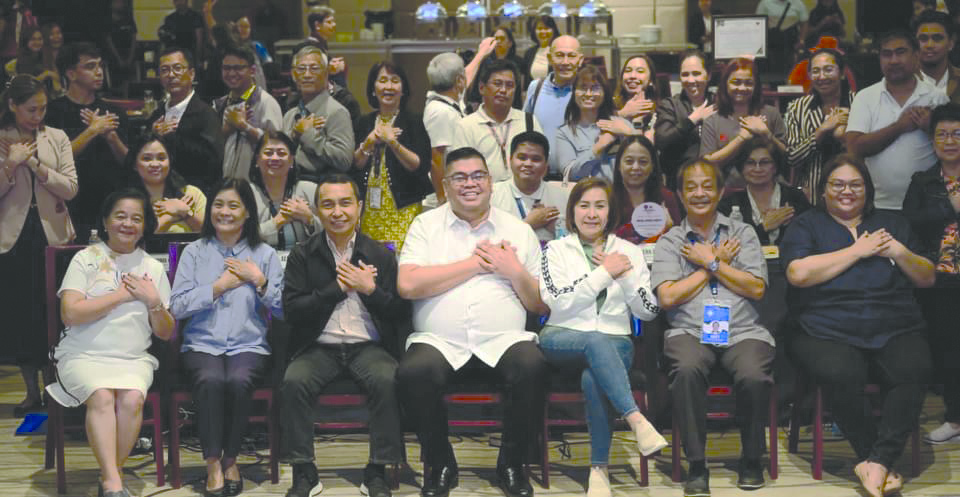From a recipient of development aid especially after disasters strike, House Speaker Ferdinand Martin G. Romualdez wants to position Eastern Visayas in central Philippines into a “key driver” of the country’s economy.
“Our region’s strategic geographic location and abundant natural resources position us uniquely to contribute significantly to various sectors such as agriculture, renewable energy, and tourism,” says Romualdez, who also represents the first district of Leyte in this region.
“By enhancing these sectors, we are setting a model for sustainable development that can be replicated across the country,” he adds.
This means prioritizing the improvement of transportation networks to better connect the region’s many islands and coastal areas and consequently boost trade and tourism.
This also means enhancing health care and educational facilities to ensure that every individual in Eastern Visayas has access to quality services.
Romualdez says that as House leader, he has the “unique privilege and responsibility to guide national legislation in a way that directly benefits the Eastern Visayas region,” bolstering hopes of the people here that the region’s potential as a growth center can indeed be maximized.
“We are actively pushing for laws that bolster our local economies, protect our natural resources, and provide infrastructural improvements necessary for sustainable development. By focusing on creating a robust framework for investment and enhancing our disaster resilience, we aim to ensure that the communities in our region are not only surviving but thriving,” Romualdez says.
“For the ordinary people in our communities, these efforts mean tangible benefits: more job opportunities, improved health care and education, better and safer roads and stronger protection against natural disasters. These developments are crucial, not just for our economic growth but for the well-being of every resident. By maximizing the potential of Eastern Visayas, we are creating a resilient, dynamic region where communities can prosper for generations to come,” Romualdez concludes.
He stresses that the potential of Eastern Visayas is boundless and that its development is crucial for the balanced growth of the Philippines.
“By strengthening this region, we are enhancing its capacity to contribute to national food security, energy production and eco-tourism. This holistic approach not only uplifts the local economy but also integrates the region more deeply into the national fabric, ensuring that the prosperity of Eastern Visayas is interlinked with the progress of the entire Philippines,” he says.
Jude Acidre of the Tingog Sinirangan (Voice of the East) or Tingog party list shares that the organization was united in Romualdez’ efforts to fast track the region’s growth, for example through the creation of the Leyte Ecological and Industrial Zone (LEIZ).
LEIZ is projected to be a decentralized, self-reliant, and self-sustaining industrial, commercial and trading, agro-industrial, financial and investment center with suitable residential areas.
For Acidre, Tacloban and Palo remain at the forefront of development in the region as a commercial and trading hub of the region. Babatngon, Leyte, meanwhile, is also poised to be a critical part of the region’s development with the projected construction of major seaport. The Samar provinces, on the other hand, remain a haven for tourists, adventurers and thrill-seekers who want to be closer to nature. Partial data indicate that the region welcomed 3.86 million tourists in 2023, a remarkable jump from 1.08 million in 2022, Acidre says.
“This success can be traced to strong development and promotion of the region’s destinations. Revenge travel as the pandemic wanes also contributed to this upsurge. Consequently, our vibrant tourism fueled a 19.8-percent increase in accommodation and food service activities,” Acidre adds.
Tingog seeks to contribute to the region’s growth through four main thrusts:
1 Increased family incomes through rapid industrialization
2 Improved social services
3 Innovative and caring governance
4 Sustained economic growth
Under the first pillar, Tingog is working hard on supporting the expansion of the livelihood programs of the Departments of Social Work and Labor and Employment.
“Currently, we are partnering with civic organizations to socially prepare, upskill, and monitor our beneficiaries and ensure that it will not just be welfare program. Rather, we ensure it to become a development program,” Acidre says.
“Tingog has allocated its budget to supporting several hospitals and educational institutions in the region to complete their infrastructure projects and enhance its service offerings. All the programs in the region are likewise cascaded in over 117 Tingog Centers across Luzon, Visayas, Mindanao. Empowering one region at a time, ensuring inclusive growth, one Tingog Center at a time,” Acidre adds.
Acidre believes that with the proper execution of these programs, investors will inevitably take notice and be encouraged to put their money into the region that badly needs the support.
“We are slowly reversing the perception that Eastern Visayas is poor. Eastern Visayas has a lot of potential,” Acidre concludes. INQ
